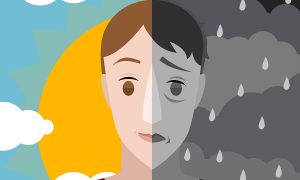
Phobia is a specific and profound abnormal fear of a particular place, thing or event. This should not be confused with our natural human safety instinct, which is an inherent fear and avoidance of detrimental situations or some anxiety disorders which rather comes as a generalized aversion. Phobia can have a lot of triggers, mostly past personal experiences or by past experiences of people around us (by witnessing or by hearing). It has also been demonstrated in other animals, and in most cases, it is acquired. In phobias nomenclature, the word “phobia” means “fear“, while the prefix is usually the Greek word for the feared object or situation.
Types of Phobia
There are over a thousand types of phobia affecting up to 10% of adults, from the common to the rare bizarre types. However, The American Psychiatric Association groups phobias into three categories:
- Social phobias: Glossophobia (fear of public speaking), stage fright (fear of performance), fear of meeting new people, fear of sexual intimacies.
- Agoraphobia: This is a phobia for situations were someone might feel trapped, helpless, harassed, or places very difficult to escape. Examples are: Claustrophobia(fear of enclosed space), fear of leaving home alone, enochlophobia (fear of crowds).
- Specific phobias: This is the most common category of phobia and includes: fears of hospital, flying (aerophobia), blood (hemophobia), height (acrophobia), driving or a particular animal.
Signs of phobia
Phobic reactions are symptoms individuals feel towards the source of their phobia. These symptoms can range from mild to severe but rarely calamitous. These signs generally include: sweating, restlessness, lightheadedness, feeling uneasy, fainting, chest pain or tightness, pounding heart and palpitations, disorientation and confusion, fast irregular breathing, nausea and vomiting, hot flushes, shaking, etc.
Can phobia be prevented?
Most phobias can be innate and therefore cannot absolutely be prevented. For phobias acquired from personal experiences, immediate psychotherapy intervention and treatment are ultimately necessary as early as possible after exposure to the inciting experience.
Eliminating your phobias
If you suffer from a phobia, you are usually self-aware of it but is impotent to overcome it, therefore, you will always make conscious efforts to avoid the sources. In most cases, you may never require medications in order to manage it. The first step you will take if you want to eliminate your phobia is to slowly and carefully expose yourself to the phobia in a harmless and monitored manner. These constant safe exposures will help your brain to gradually get desensitized to that particular stimulus.
Humor systematic desensitization can also be employed. A process in which comics and humor eliciting events are programmed for you. This enables you to feel more relaxed around your source of phobia, and thereafter you can apply the same learned relaxation in real exposures, when the humor may not be there.
If all this life modification therapies are not effective for eliminating your phobia, go and see your doctor, who might prescribe sedatives or anti-depressants like MAOi or SSRIs for you at highly regulated doses.
Conclusion
Having a phobia is common and usually not life threatening. To eliminate your phobias, you will be required to get a planned step wise approach, where your brain will be modeled to gradually learn to react less towards the instigator.
Onyeka, Nnaemeka Victor
Clinical Medical Student,
Nnamdi Azikiwe University, Nigeria.
Onyeka, Nnaemeka Victor is a passionate content and copywriter. He is also a lover of poetry which have gotten him many publications.
Currently a clinical medical student, he has been privileged to get involved in so many philanthropic activities driven by passion to see a better world.
He simply loves writing, especially poetry and medical articles.


